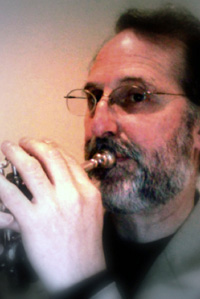"In the composition courses I teach, we're dealing with a body of knowledge that dates back a couple of centuries, so I try to show the connection to more recent compositions. 'Over the Rainbow,' for example, fits into an eighteeth-century European structure almost perfectly. After we analyze it in class, I make the point that it's one of the most commercially successful pieces of songcraft that has ever been created. We start talking about why that's true, and that its elements, in terms of organization and melody, are also true for a Beatles tune or a piece by Bach. Those all have universal elements of construction that are effective and timeless."
"I would even describe hip-hop, an art form based on layers of sound, as contrapuntal. You wouldn't place it in the same category as that of Palestrina or Bach, but nonetheless it's a kind of counterpoint. In a way, none of this is new; it's all just variations on ideas that have been around for a long time."
"I've been teaching for close to 30 years now at Berklee and I'm still fascinated by the subject matter I teach. That's the wonderful thing about it: there's a huge universe of possibilities generated from 12 pitches and a few other concepts. It's kind of mind boggling. I try to bring that enthusiasm with me when I walk in on the first day of classes every semester, and I attempt to engage students on that level—that this is something exciting that we have an opportunity to explore together."
"That level of engagement is important to me; it energizes me when students come to class curious and creative. Even if they don't know anything about counterpoint coming in, I think it's extremely important for students to check their preconceptions at the door, to walk in with an open mind and a sense of the joy of exploration. This is a time for them to explore things that they will never, ever have the opportunity to explore in the same depth again."

